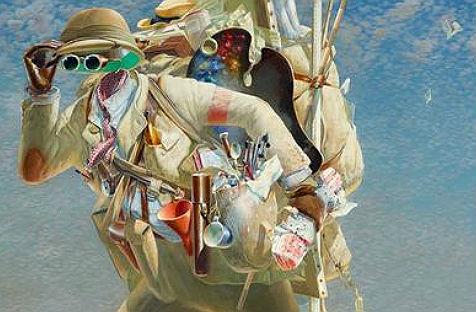Regional arts is not just touchy-feely community-building, it can also be excellent work.
I’ve noticed in the ten years I’ve lived in regional Australia that there’s a troubling disconnect in terminology between metropolitan arts and regional arts; that aspirational words like ‘excellent’,’global’ and ‘elite’ are used far too infrequently in the narrative surrounding regional arts. So I want to sound a tiny alarm – we urgently need to challenge the numbingly benign, feel – good, bland language that’s habitually used to describe cultural, intellectual and creative life in regional Australia, because it’s a product of a national mindset that either can’t see, or underestimates, our dynamism and our potential impact on the national cultural landscape.
How can soft language be limiting, or even undermining regional arts? Here’s an example. The Federal Government’s National Cultural Policy: ‘Creative Australia – a ten year vision for the arts in Australia’ doesn’t look like it will have the chance to see out its first year, which is a shame because we all had such hopes for it and indeed there are many terrific initiatives, exciting new directions and inspiring ideas in Creative Australia. When it came out I was excited to read it, and to feel part of a new national vision for the arts. But there was something about this document that immediately troubled me, and it was a language thing.
Scanning through the policy for what it said specifically about the arts in regional Australia, not only was I disappointed that that section started on page 102 o f a 121 page document, and that no new money was injected into this spectacularly underfunded – yet – over – delivering sector. It seemed to me that the language became softer and less aspirational the further one travelled toward the back of the document, toward the section called ‘Regional Development and Social Dividends through Community – Based Arts And Cultural Programs’.
Now throughout the Creative Australia document, the word ‘Excellence’ is used liberally, indeed up to five times on some pages…But in the section that specifically talked about regional arts, I’m sad to say, the word ‘Excellence’ is not used once.
And the language has changed notably. Suddenly we’re talking about the arts making regional communities ‘resilient, inclusive, cohesive and positive, linking and unifying people from different backgrounds and circumstances, fostering understanding and building a common sense of purpose.’ Which they do, of course, but can’t they also be excellent?
…
I had a quick scan of Arts Qld’s Regional Arts Development Fund guidelines handbook, which in 30 pages also shows zero use of the word excellence (or excellent) and only once is the word quality used, in the foreword. The word quality is used, albeit very sparingly, in the Qld Govt’s Artbeat Regional Arts and Culture Strategy 2010 – 2014, and the phrase artistic excellence is used twice, in relation to the fine regional work done by QMF. There are all sorts of other lovely words: rich, diverse, innovative, vibrant, meaningful. But they’re not the same thing as quality and excellence, and I’m starting to get the feeling that regional artists are being talked down to, that less is expected of this sector.
Whether that’s the case, or the concept of excellence is seen as somehow threatening, or unrealistic, or too high – falutin’ or elitist, it’s clear to me that there’s something amiss with the narrative around community arts and the Arts in regional Australia in this area.
This reticence to talk up our artistic ambitions, to reach higher, to demand the best of ourselves and others is eerily familiar. It reminds me strangely of the reticence that many women feel about demanding their rightful place in the boardroom or executive office.
And the warm and fuzzy vernacular around the narrative suggests and reinforces a lack of sector dynamism and rigor that as an artist working in this area, I find inaccurate and annoying. I strongly believe that regional artists should, and could, be claiming a larger slice of the funding pie, more corporate and philanthropic support, claiming more kudos and inspiring bigger audiences for our work.
But until we assert our strengths and seize a more central place – our rightful place, in my opinion – in the national cultural narrative, we will continue to play the poor cousin to the ‘excellent’, ‘elite’ metropolitan arts sector.
This article is an extract from a speech to the Rockhampton Articulate Regional Arts Conference.
Image: A detail of ‘The histrionic wayfarer (after Bosch)’ by Tim Storrier, an artist working in regional NSW and winner of the 2012 Archibald Prize.





